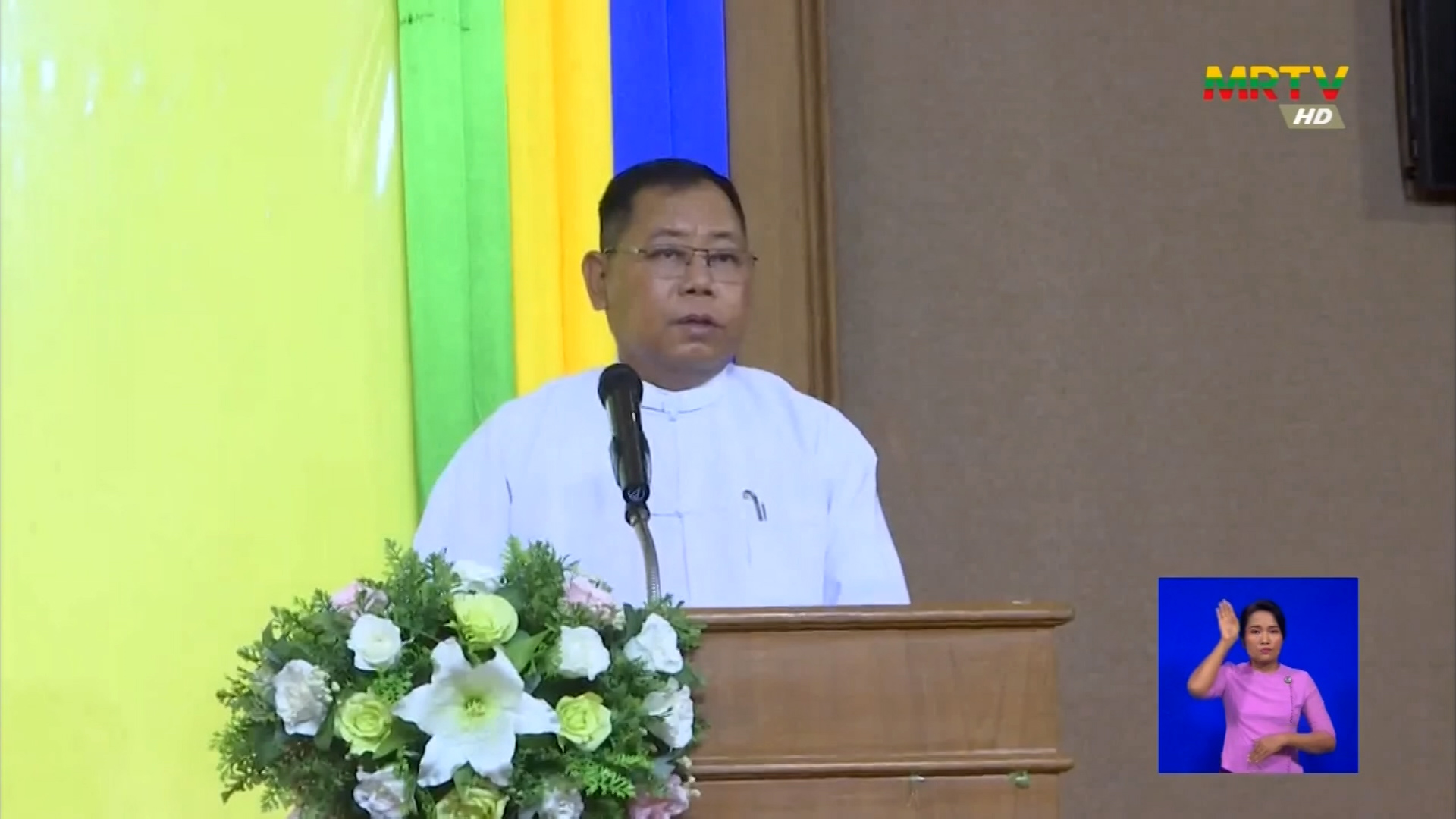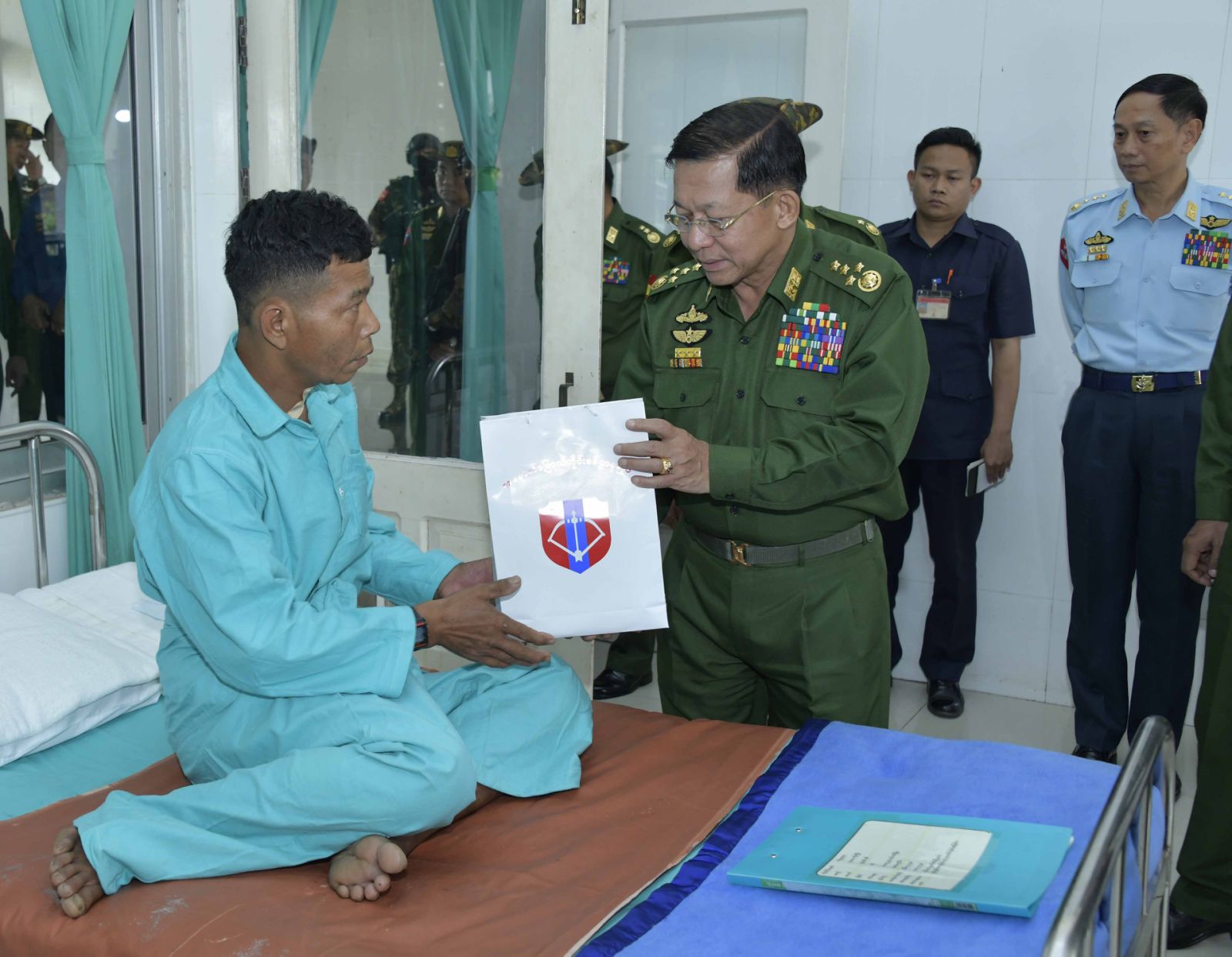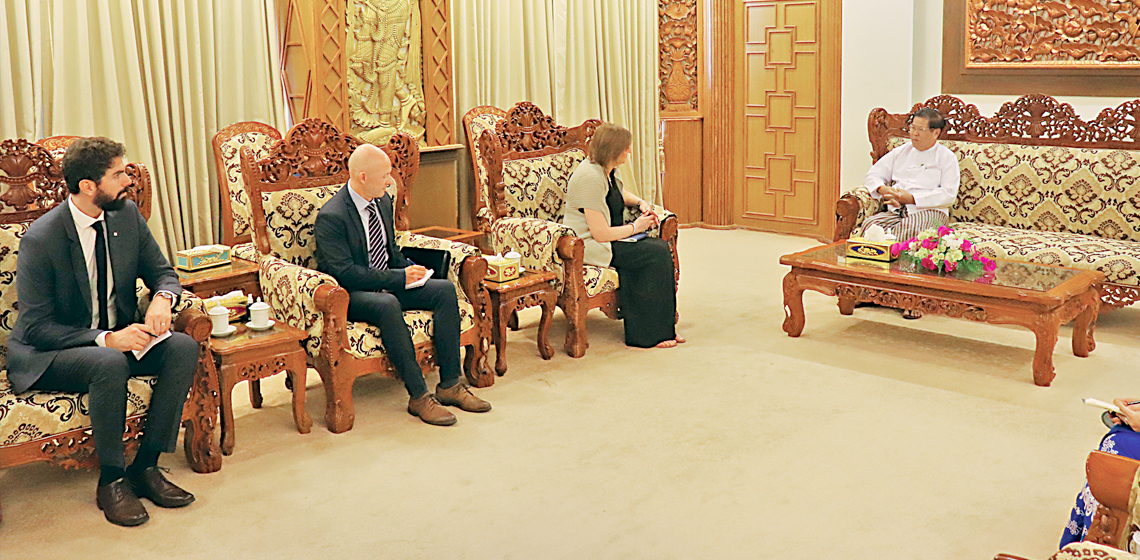Naypyitaw hit by blackouts
Junta media have been buzzing with all things electric recently, reporting such illuminating facts as charging stations for electric vehicles being up and running in major cities like Naypyitaw, Yangon, and other places. But EV drivers in Naypyitaw, the military generals’ base, are now finding themselves having to get about on foot as the administrative capital no longer enjoys round-the-clock electricity.
Up until March 22, Naypyitaw was the only place in Myanmar with reliable access to electricity. Now it too is suffering rolling blackouts.
Power outages have been a part of everyday life since late 2021 in Myanmar, a few months after the putsch. But other than urging people to save energy, Min Aung Hlaing has done little to shed light on the problem.
Which is why many citizens are scoffing at junta newspapers’ boastful articles about the regime’s modular reactor project supposedly being implemented with technical assistance from Russia, as well as China-backed solar power and wind power projects. Can these really start to produce electricity sometime in the future? And for the whole country as well as Naypyitaw?
Meanwhile, as the generals no doubt enjoy at least some relief from the summer heat, Myanmar’s people are resigned to suffering worsening power outages.
Buddhist philosophy training course run by killers

The junta’s Home Affairs Ministry, notorious for its brutal torture and killings of pro-democracy supporters since the military takeover, has launched a basic Abhidhamma (Buddhist psychology and philosophy) training course for its staff.
The training on Abhidhamma, the higher-level teaching of the Buddha, is organized by Home Affairs Minister Soe Htut, deputy minister and deputy military intelligence chief Toe Yi, and deputy minister and police chief Zin Min Htet, who have been violating one of the fundamental precepts of Buddhism – to refrain from killing any living being – almost daily.
A total of 643 officers and other ranks will be attending the one-week course until March 31.
The stated purpose of the training is a political slogan familiar from previous military regimes – to kindle love for one’s own race and religion, in this case Buddhism, as well as national prestige and integrity. That leaves little hope that the trainees from interrogation chambers and the correctional department will be tamed by words of peace and love.
Min Aung Hlaing meets Russian legal chief
A Russian legal delegation led by Prosecutor General Igor Krasnov visited junta chief Min Aung Hlaing in Naypyitaw on Wednesday. Krasnov is a member of Russia’s Security Council and has been sanctioned by the US, Canada, the EU, Japan and the UK for Russia’s war against Ukraine and atrocities against Ukrainian citizens.
Min Aung Hlaing and Krasnov discussed sending military officers to learn Russian military law, Russian legal training in Myanmar, potential further legal cooperation, and bilateral language classes. The Russian delegation also met junta-appointed Legal Affairs Minister Daw Thida Oo to sign a memorandum of understanding and organize a seminar on legal cooperation.
Russia is a key supplier of arms for the junta and bilateral ties have deepened since the 2021 coup with agreements on economic, diplomatic, academic, nuclear and now legal cooperation.
Junta chief visits Sagaing as terror campaign escalates
Min Aung Hlaing on Sunday visited Sagaing Region, the hotbed of anti-regime resistance in central Myanmar, to meet junta personnel serving under the Northwestern Command. It was his first visit to the command since the imposition of martial law in Sagaing Region last month.
The regime declared martial law in 14 Sagaing townships, placing them under the direct control of Northwestern Command. In an escalation of its campaign of atrocities, the junta is using martial law to step up its terror offensive in Sagaing, perpetrating more massacres and arson attacks against both resistance fighters and civilians.
Observers say Min Aung Hlaing went to Sagaing to give detailed guidance for the ongoing terror campaign.
Dictator stoops to offering false incentives to troops

While the junta’s atrocities continue at full speed, its leader is not above offering false incentives to his own troops.
In his recent meeting with junta battalions in the resistance stronghold of Sagaing, Min Aung Hlaing declared: “Opportunities have been created to make an investment in Myanmar Economic Holdings Limited [MEHL] so that individual soldiers can receive benefits.”
The truth is that it has been mandatory for more than 20 years for soldiers of all ranks to buy shares in the military-owned corporation.
The amount rises with seniority. A captain is required to invest 3 million kyats in MEHL and lower ranks 1.5 million kyats. Those who cannot afford the full amount make monthly payments from their salaries.
Since the coup, MEHL profits have tumbled amid mass boycotts of its cash-cow products including beer and cigarettes. Due to the boycotts, the regime was several months late in paying dividends from 2021 to military personnel.
Meanwhile, Min Aung Hlaing has been squandering huge sums on his vanity projects – holding grand military reviews to mark Independence Day and Armed Forces Day, building a massive marble Buddha statue, and bestowing honorary titles on individuals, to name a few.
So junta soldiers can’t expect much in terms of extra income. But needless to say, deductions will be made from their salaries to cover premiums for mandatory insurance.
Junta meets ICRC to appease international critics

The Myanmar military regime held meetings with the International Committee of the Red Cross twice this month, but since this was just a show to ease international pressure, it produced little in the way of results.
On March 8, deputy junta chief Soe Win received ICRC director Martin Schuepp and discussed the resumption of family visits to inmates, which have been banned since the COVID-19 outbreak in 2020.
On March 22, ICRC resident representative to Myanmar Elena Ajmone Sessera met with the junta’s Foreign Minister Than Swe and International Cooperation Minister Ko Ko Hlaing to discuss ICRC’s activities in Myanmar, and coordination for humanitarian assistance to the country.
It is unclear how these meetings will impact prisoners, but political prisoners detained in jails across the country continue to face gross human rights violations, beatings, torture, and denial of medical treatment. Thirty-three political prisoners have died in prisons since the putsch.

















